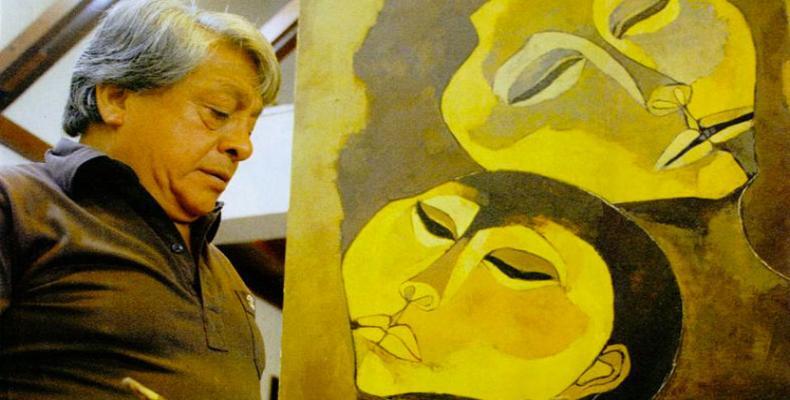Quito, July 7 (RHC)-- Hondored as one of the greatest painters of the 20th century, the memory of Ecuador’s Oswaldo Guayasamin was celebrated Saturday on the 100th anniversary of his birth.
Across the region and in his home country of Ecuador, events were held to celebrate the centennial of his birth. The artist's final years were spent bringing the struggles of Latin American history to life with his colorful and powerful paintings. Guayasamin once described his work as "a painting of denunciation, of great strength, of content.”
"From town to town, from city to city, we witnessed the most immense misery: peoples of black clay, black earth, with children muddied with black mud, men and women with faces of skin burned by the cold, where the tears were frozen for centuries, until not knowing if they were salt or stone," said Guayasamin in a phrase that stands out on the website of the foundation dedicated to the painter.
Born to Indigenous parents in 1919, Guayasamin was sympathetic to the trials faced by the Indigenous communities, and those displaced and abused by “imperialists” throughout the centuries.
As the world wars and regional conflicts filled the headlines of newspapers, Guayasamin took to his art, creating the series “The Age of Wrath,” which, he said, “shows all the tragedy of the twentieth century, the wars kill-men, the torture and pain that produced the dictators, the anguish of mothers who lost their children. As well as a denunciation of the violence of man against man.”
Guayasamin collaborated with one of Mexico’s greatest painters, Jose Clemente Orozco, in the 40s and completed several murals both in Ecuador and abroad.
Some of his best known works are "The Workers," "The Dead Children," "Mother and Child," "Quito Green Fog," "White Coffin," "The Hands of Protest," "Mutilated," "Tears of Blood," "The Guitarist," “Cabeza de Napalm," “Playa Giron" and “Meditacion I."


